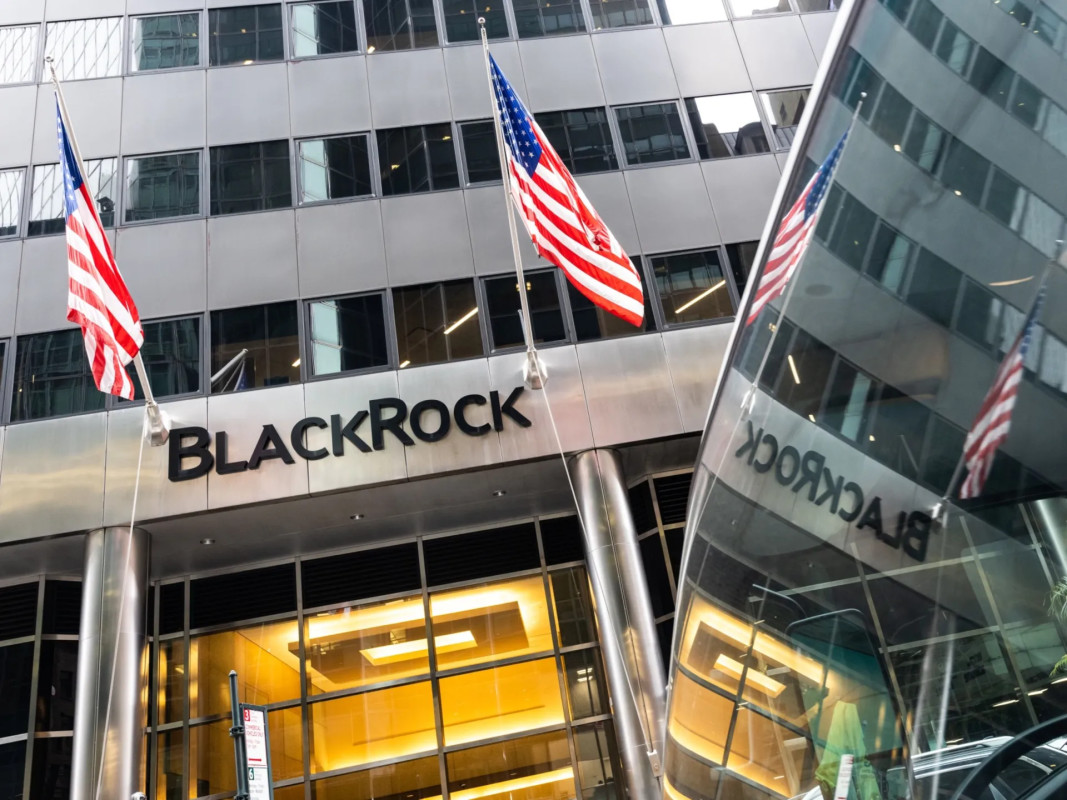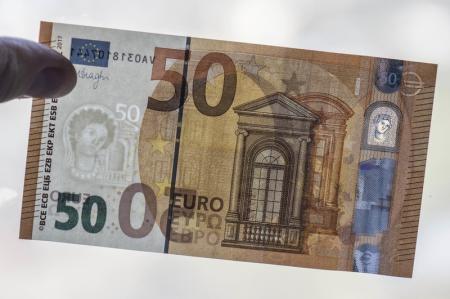Month: August 2024
UBS sees EUR/CHF slipping amid rate cuts
Post Content
Nasdaq Seeks SEC Approval for Bitcoin Index Options, Aims to Boost Crypto Market Maturity
Nasdaq, in collaboration with CF Benchmarks, has filed with the Securities and Exchange Commission (SEC) to list and trade the Nasdaq Bitcoin Index Options (XBTX). If approved, this new product will offer investors a sophisticated tool to manage and hedge their Bitcoin investments through options, which the Nasdaq said will further “the maturity and liquidity of the asset class.”
JUST IN: 🇺🇸 Nasdaq is seeking SEC approval for #Bitcoin index options: Reuters pic.twitter.com/CT4WeljIbZ
— Bitcoin Magazine (@BitcoinMagazine) August 27, 2024
“We are proud to partner with CF Benchmarks for the Nasdaq Bitcoin Index Options, providing market participants with trusted investment avenues for accessing the digital asset ecosystem,” stated Nasdaq’s Vice President and Head of Exchange Business Management, Greg Ferrari. “This collaboration further combines the innovative crypto landscape with the resiliency and reliability of traditional securities markets and would mark a significant milestone for expanding the maturation of the digital assets market.”
The index options will track the CME CF Bitcoin Real-Time Index (BRTI) and will include European-style exercise and cash settlement provisions, with the final settlement value based on the CME CF Bitcoin Reference Rate – New York Variant (BRRNY), divided by a factor of one hundred upon expiration. This product is designed to cater to both institutional and retail market participants, providing access to a new risk management tool, the Nasdaq said.
“CF Benchmarks is delighted to partner with Nasdaq on the launch of options settling to the CME CF Bitcoin Reference Rate – New York Variant (BRRNY), the most liquid and widely recognised BTC price benchmark for the US market,” said Sui Chung, CEO of CF Benchmarks. “Spot options settling to BRRNY will build upon the hugely successful BTC futures and options contracts offered by CME. Together these regulated crypto derivatives will give investors the confidence to deploy more nuanced ways to gain exposure to the largest digital asset and will complement the spot ETFs that have already proved so popular with investors. As the cornerstone provider of regulated benchmarks for the asset class we are proud to bring more institutions to the market that will keep improving market liquidity.”
The Nasdaq said it is committed to advancing the Bitcoin and crypto ecosystem through trusted technology and fostering institutional adoption. As this ecosystem matures, Nasdaq emphasized the critical importance of trust, transparency, and investor protection. To support these principles, Nasdaq offers a variety of solutions, including Central Counterparties (CCPs), Central Securities Depositories (CSDs), and backing for Exchange Traded Product (ETP) listings. These offerings help enhance market stability, liquidity, and overall investor confidence in Bitcoin.
An Untold Story of Bitcoin in Thailand
In the rapidly expanding global Bitcoin community, Western biases often dominate the narrative, overlooking diverse stories from around the world. One such story belongs to Didier Somnuke, a small business owner in the heart of Bangkok, a city known for welcoming 22.8 million international tourists in 2023, surpassing cities like Paris, London, and New York City. Although Thailand has experienced a massive spike in household debt, reaching 16.37 trillion baht (US$463 billion) or 90.8% of the national GDP, up from less than 14 trillion baht in 2019.
Didier Somnuke, born in Yala province, where geopolitical conflict is a harsh reality. Southern Thailand is one of the poorest parts of Thailand with a poverty rate of 34% compared to the national average of 6%, according to the World Bank, has been plagued by instability. Since 2004, this turmoil has claimed over 7,000 lives and injured 13,500 people.
As a Thai saying goes, “ทวงสิทธิ์ที่จะมีชีวิตที่ดีกลับคืนมา” (Reclaim the right to a better life), In 2012, Didier left his conflict-ridden hometown for Bangkok, where pursuing higher education was a beacon of hope for a better life. At that time, Bitcoin and financial concepts were distant ideas in Didier’s universe. Navigating the vibrant streets of Bangkok, Didier completed his master’s degree and joined the workforce, taking up a typical 9-to-5 job. For a domestic migrant, this was a significant achievement. Reflecting on his journey, he recalled his teacher’s words, “When you are old, you have time and money, but you will lack the energy to start a business. If you want to do it, just do it.” With this advice in mind, Didier resigned from his monotonous corporate job after a year and opened a new chapter in his life.
Didier borrowed 50,000 THB (approximately 1,500 USD) from his brother to begin a street burger shop. He chose to start a burger business because he believed it was easy to launch with a small investment. Driven by his ambition and inspired by the bustling energy of Bangkok, a city that never sleeps. He spent about a year developing the recipe and began the business in 2015. In the first three to four years, he managed everything on his own as a solo entrepreneur, and his income was lower than the wage he earned in his corporate job. He often wondered if he had made a mistake by quitting his job to start a business that generated less income. However, after five years, everything started to improve. Sales at the shop began to increase, and Didier started hiring employees.
He admitted, “I entered the crypto market with greed; all I wanted was to get rich quickly.” In 2017, he and his friends pooled their resources to buy three ASIC miners from Bitmain to try mining Bitcoin and altcoins like Litecoin and Dogecoin. They saw a return on their investment within six months. Didier bought his first Bitcoin in early 2017 to purchase those ASIC miners but didn’t know how to transfer his Bitcoin, so he ended up using a bank transfer instead.
Reflecting on his early experiences, he recalled, “My first Bitcoin were slowly converted to shitcoins during the bull market. I was so lucky. I got a 100% profit almost immediately whenever I bought something.” Despite having zero knowledge about cryptocurrency, he gained confidence and became a super shitcoiner, paying very little attention to Bitcoin.
In mid-2017, he learned about leverage and trading. His profits skyrocketed due to leverage. Although luck was not always on his side forever, in early 2018, the market crashed, and he lost over 1 million Thai baht (almost 30,000 USD), while his initial capital was just about 100,000 Thai baht (about 3,000 USD). On top of that, he also lost his shitcoins from the mining pool. He had kept all of his shitcoins in the mining pool’s custody, and one day, when he checked his account, every shitcoin he owned, worth 10,000 USD were gone. The notice on the mining website, “Hash-to-Coin,” stated that if coins were kept with them for more than three months, they would be considered a donation.
He disheartenedly said, “I lost everything.” But unlike most people, “I didn’t blame Bitcoin. I still see it as the future. I blame myself. I didn’t know anything and I did over leverage.” He emphasized that despite his heavy financial losses, his girlfriend did not leave him. “My girlfriend was my customer. She regularly came to buy burgers. I met her while I was struggling financially during my early days as an entrepreneur. She supported me and said we could make the money back.”
Determined to turn his circumstances around, he discovered Mr. Piriya on YouTube and started following his live streams about the real Bitcoin education. This marked the moment he began to truly understand what Bitcoin and cryptocurrency are. Enlightened by this unique knowledge, he came to see Bitcoin as a saving technology rather than just a trading tool. Over three years, Didier recovered from his losses and emerged stronger. He got to be friend with Mr. Piriya, and together they founded a company called Right Shift to develop Bitcoin content in Thai language through multiple social media channels, including on Nostr with with one of the popular hashtag #siamstr. As a team, they translated “The Bitcoin Standard” and “The Fiat Standard” into Thai, both of which became best-selling books in Thailand. They organized the first-ever Bitcoin Thailand Conference in 2023 and are now preparing for the next one in September 2024.
Didier now accepts Bitcoin as a payment method in his main burger shop, one of four different franchises. He uses Wallet of Satoshi to process these payments. Within a year of implementing this initiative, he has received over 3 million sats in payments, though he initially expected to see more transactions in Bitcoin. In his marketplace, some neighboring small business owners occasionally ask him about Bitcoin as they notice the large Bitcoin poster in his shop. Although they often lose interest once he explains, according to his several unsuccessful experience. Instead now, he focuses his energy online, where he can make more impact to people who are willing to embrace innovation.
In 2022, approximately 8.4 million people in Thailand, accounting for 12% of the country’s population, used cryptocurrency. Estimates suggest that by 2028, this number will rise to about 17.67 million, representing 25% of the population. During our conversation, Didier claimed that there are about 50,000 Bitcoin users in Thailand and speculated that the Thai government might intervene in Bitcoin adoption, potentially mandating the use of KYC wallets because they dislike money systems they can’t control. In the worst-case scenario, Didier remains resolute: he will continue advocating for Bitcoin with his friends. “It is not an option,” he asserted, “it is the only way to survive.”
This is a guest post by Win Ko Ko Aung. Opinions expressed are entirely their own and do not necessarily reflect those of BTC Inc or Bitcoin Magazine.
Hilbert Group Partners with Xapo Bank to Launch $200 Million Bitcoin Hedge Fund
Hilbert Capital, a division of Hilbert Group AB, has entered into a significant partnership with Xapo Bank to manage a new Bitcoin hedge fund, according to a press release sent to Bitcoin Magazine.
The fund is expected to receive over $200 million in initial investment capital from Xapo Bank and other investors, according to the release. This initiative is being launched to allow corporates, businesses, and professional investors the option to generate returns in Bitcoin through institutional-grade structured credit arrangements.
“We believe that offering the right products for participants in the space who are aiming not only for exposure to the Bitcoin price, but also structured ways to grow the Bitcoin value of those investments is a natural evolution of the asset class,” said Joey Garcia, Director of Xapo Bank. “Having the fund operated with the right level of investment experience, security and operational integrity is fundamental and we see Hilbert as a key partner in that offering.”
The fund is also set to offer fees at a rate lower than Hilbert’s standard “2% and 20%” hedge funds, stated the press release.
“Over the last 12 months, we have developed a close and strategic partnership with Xapo Bank, a veteran in the Bitcoin space and a tier-one financial institution in the digital asset space,” commented Niclas Sandström, CEO of Hilbert Group. “Given the investment opportunity and the quality and experience of the team, we anticipate that the Fund will grow meaningfully over the next year.”
BlackRock’s Bitcoin ETF Saw Highest Inflow in Over a Month
On Monday, BlackRock’s spot Bitcoin exchange-traded fund (ETF) saw its largest single-day inflow in over 35 days. The iShares Bitcoin Trust (IBIT) took in $224 million in net inflows.
NEW: 🇺🇸 While others are selling, BlackRock’s #Bitcoin ETF saw $224 in inflows yesterday.
Highest in over a month 🚀 pic.twitter.com/sCiSGhKzCp
— Bitcoin Magazine (@BitcoinMagazine) August 27, 2024
The sizable capital injection came as Bitcoin pulled back slightly from its recent rally. It highlights the continued strong demand for IBIT amid mixed flows for other spot Bitcoin ETFs. IBIT accounted for the bulk of Monday’s $202 million total inflows into U.S. spot Bitcoin ETFs, which was IBIT’s highest inflow since July 22nd.
Other spot Bitcoin ETFs saw divergent results. Franklin Templeton’s and WisdomTree’s Bitcoin ETFs added about $5 million each. However, Fidelity’s Bitcoin ETF saw $8 million in outflows, while Bitwise and VanEck posted outflows over $15 million.
The varied performance reflects diverse investor outlooks and strategies in the nascent Bitcoin ETF space. Nonetheless, inflows into IBIT and select other funds stretched the overall inflow streak to eight consecutive days.
With over $20 billion in net inflows, IBIT has cemented itself as the dominant spot Bitcoin ETF. BlackRock now holds over 350,000 bitcoins worth nearly $22 billion in the fund.
The asset manager recently added IBIT shares to its Strategic Global Bond Fund, underscoring its confidence. As mainstream adoption increases, BlackRock’s Bitcoin ETF is positioned to see steady inflows.
EUR/USD to grind higher to above 1.15 in 2025: UBS
Post Content
Citi discusses USD/JPY outlook amid LDP election uncertainty
Post Content
Bullish euro momentum, buy EUR/SEK – BoA
Post Content
Dollar steady near recent lows; labor market data key
Post Content
Asian currencies rally will slow, not stop
Post Content








